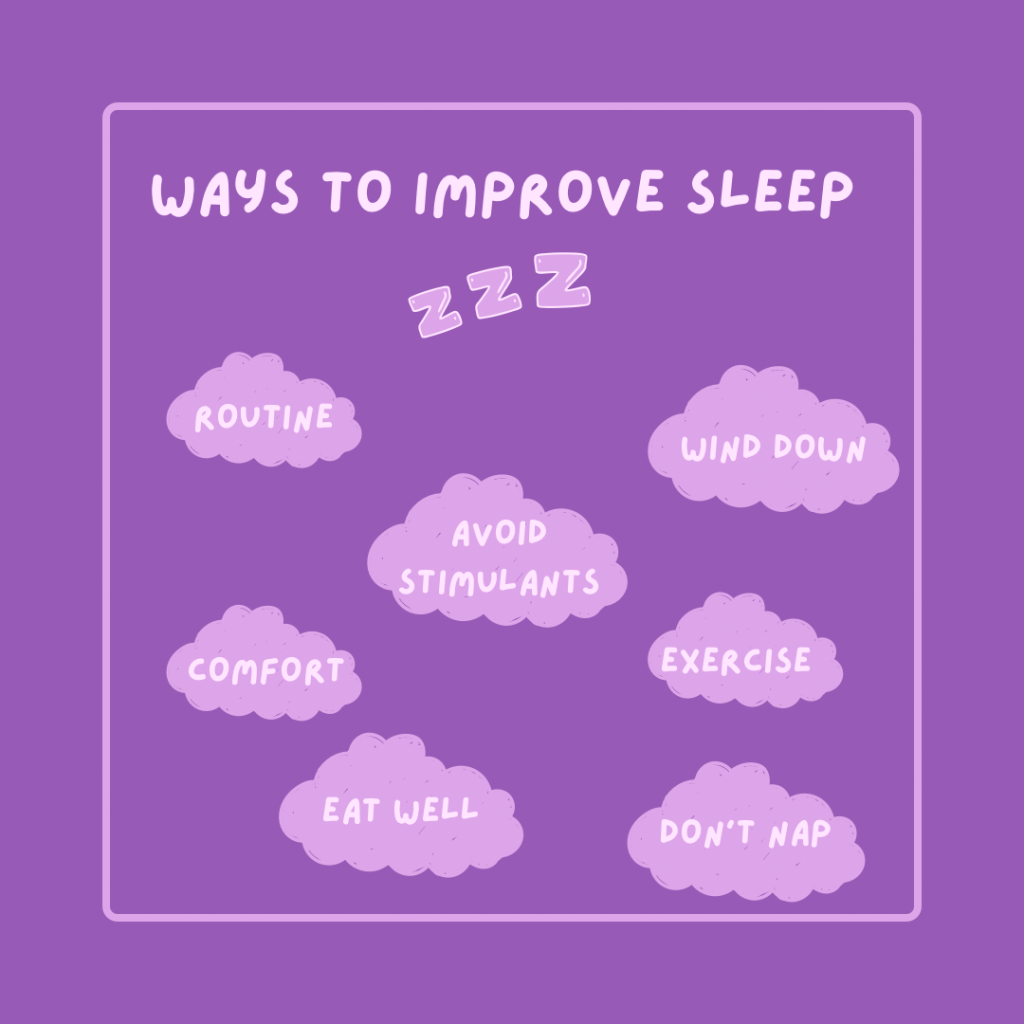Making sure we get enough sleep is vital in protecting our overall health.
How much sleep is enough?
On average, adults should aim for around 7-9 hours each night.
The specific number of hours depends on each person and your current circumstances. For example, if you’re recovering from an illness you might need to sleep longer than usual.
What happens if we don’t get enough?
A lack of sleep can have several short and long term effects on our health. These include:
- Fatigue
- Low mood
- Difficulty concentrating
- High blood pressure
- Anxiety
- Increases the your risk of road accidents
- Higher risk of heart disease and diabetes
Benefits of sleeping enough each night:
When we’re asleep, our body rests and resets! This allows our tissues to regenerate, our muscles and joints to relax and recover and our short term memories to turn into long term memories.
Hitting your individual sleep goal can also:
- Improve memory, concentration and cognitive function
- Increase concentration and productivity
- Help your emotional regulation
- Boost our immune system
- Improve heart health
- Regulate appetite
How can we improve the quality of our slumber?

- Try to create a bedtime routine – sleeping at a similar time each night helps to regulate our natural sleep-wake cycle called the circadian rhythm.
- Wind down before bedtime – try reading a book or following a relaxation technique such as meditation.
- Build the right sleeping environment – make your space comfortable, reduce distractions (including excessive screen time) and set the right lighting and noise level that suits you.
- Avoid using your bed for other activities – watching tv or studying in bed interferes with the association between being in bed and sleepiness in our brain.
- Avoid napping during the day.
- Get plenty of exercise – when we work out our bodies naturally produce a hormone called melatonin which helps to regulate your circadian rhythm.
- Avoid stimulants such as alcohol, caffeine, cigarettes and vapes which can make falling asleep difficult.
- Eat a nutritious meal for dinner but avoid eating a meal within 2 hours before you go to bed.
- Don’t force yourself to fall asleep! If you’re having trouble, take a break and return to bed when you feel tired again.
Start a healthy bedtime routine today!
Find more of our health tips here.
Book an appointment with us here or call us on 9651 5559.
We have appointments available:
- Chiropractic – Tue, Thu and Sat
- Massage – Mon, Wed and Sat
- Naturopathy – Mon to Fri
Sources:
Harvard Health. 2023. 8 secrets to a good night’s sleep. https://www.health.harvard.edu/newsletter_article/8-secrets-to-a-good-nights-sleep
Health Direct. 2020. Sleep. https://www.healthdirect.gov.au/sleep
Solan, M. 2023. How much sleep do you actually need? Harvard Health. https://www.health.harvard.edu/blog/how-much-sleep-do-you-actually-need-202310302986
